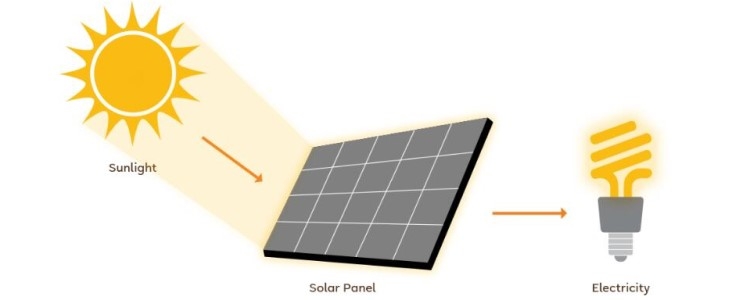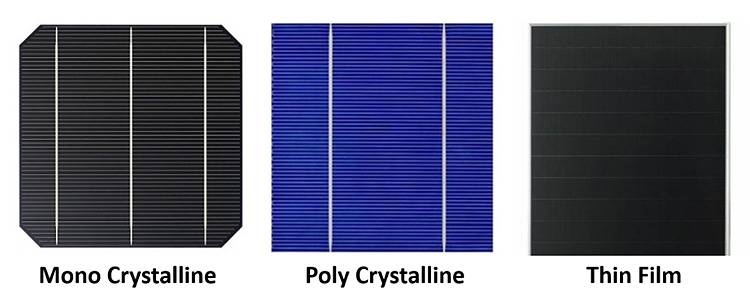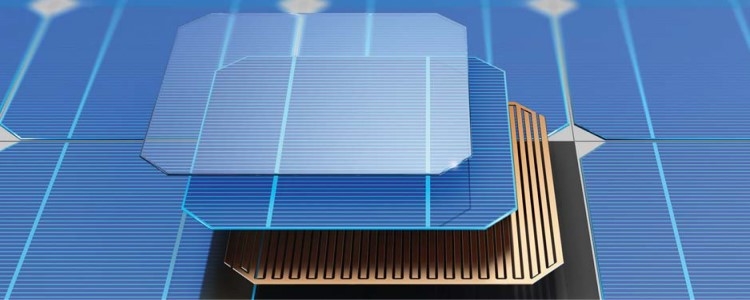Solar panel is photovoltaic module that utilizes the sun's energy to convert it into electricity, and have been used in a wide range of applications for home power, commercial projects, and industry. When shopping for solar panels, consumers need to consider several factors to ensure that they choose the right product for their needs. This blog will provide a guide to solar panel shopping to help readers better understand what to look for when buying solar panels.
Power of Solar Panels
The power of solar panels are important indicators for evaluating their performance. The power metric indicates the maximum power output that a solar panel can produce, and is generally measured in Watts (W). Choosing solar panels with the right power for your home or project needs will ensure that the system can meet the required power supply.
Generally speaking, the power of a solar panel is directly proportional to the area of solar cells. The area of solar cells wafer is not exactly equal to the area of the solar encapsulated panel, because some solar panels are large but the solar cells are arranged with wide gaps, so the power of such solar panels is not necessarily high. It is commonly believed that the more power a pv panel has, the better it will be. However, high-power panels are large and heavy. If users buy solar panels mainly for outdoor activities, such panels are inconvenient, and they need to find a balance between the power and portability of solar panels.

Moreover, the battery configuration of the solar generator and the level of sunshine in the area of use also affect the choice of solar panel power. To give a simple example:
How many watts of solar panels does a 300W portable solar generator (battery capacity: 80Ah/3.7V) need to be equipped with to be fully charged in an environment that absorbs five hours of sunlight per day?
80Ah x 3.7V = 296Wh
296Wh / 5h = 59.2W
Theoretically a 60W panel can accomplish this task. However, in practice, the effects of sunlight intensity, temperature, solar charge controller efficiency and the quality of the panels should be taken into consideration, and a 60W panel will not be able to charge this generator. Calculate the overall efficiency as 0.8:
59.2W / 0.8 = 74W
Then an 80W solar panel would be a better choice.
Types of Solar Panels
Solar photovoltaic panels are usually categorized based on the material used in the solar cells in them:
- Polycrystalline type.
- Monocrystalline type.
- Thin-film types.

Polycrystalline panels have high efficiency and good durability and are suitable for most application scenarios. Monocrystalline panels are more efficient, but also relatively more expensive. Thin-film panels are thin and lightweight, but less efficient and suitable for flexible applications.
Ranking by efficiency: Monocrystalline type panels (up to 17%) > Polycrystalline type panels (12 to 15%) > Thin-film type panels (around 5%). However, crystalline silicon (monocrystalline and polycrystalline) ones basically do not generate current in low light, and amorphous silicon (thin-film, flexible, etc.) ones will be better in low light.
There are also double-sided, centralized, hybrid, and other types. They are not widely used either because they are expensive or because they have a large footprint. All things considered, the most popular pv panels are monocrystalline and polycrystalline types.
Brands & Prices
There are numerous brands in the solar panel market, and consumers should focus on the brand's credibility and product quality in addition to price and performance. By choosing solar panels from well-known brands, you can get better after-sales service and product quality assurance. Consumers can choose a reliable solar panel brand by reviewing relevant information, understanding brand reputation and product reviews.
We recommend the PowerHome brand. As an online store dedicated to the production and sale of solar panels, PowerHome's products are of superior quality, while supporting free shipping and returns within thirty days to guarantee your shopping experience.
Price is an important consideration when buying solar panels. The price of solar panels varies greatly among different brands, types and powers. Consumers can choose the right product according to their budget and needs. However, consumers should not only look at the price when buying solar panels, but should consider the above-mentioned factors such as power, efficiency, materials, brand and quality.

In conclusion, shopping for solar panels requires consumers to fully understand the product's power, efficiency, type, brand and price. By considering these factors comprehensively, consumers can choose solar panel products that suit their needs. Meanwhile, consumers are advised to consult professionals before purchase to get better buying advice and services.
(1).png)
(1).png)